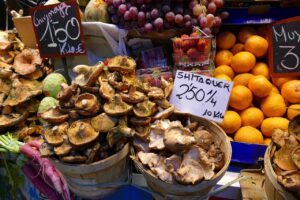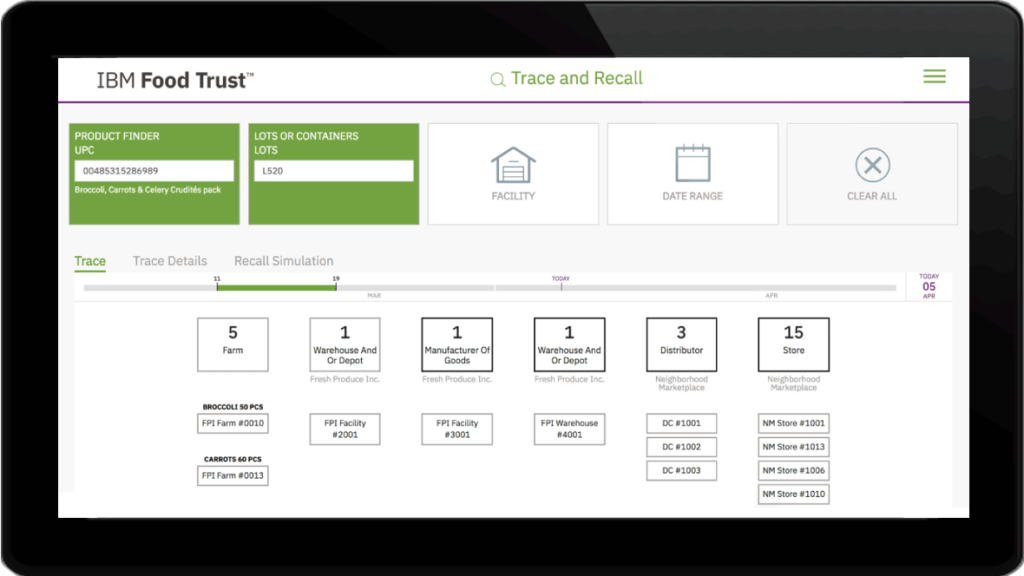Swiss transnational food and drink company Nestle is looking to use blockchain to provide consumers with increased traceability of food products.

Food market, Pixabay
“There is a demand from consumers for more transparency and trust,” Benjamin Dubois, digital transformation manager of global supply chain at Nestle, told 24 Heures. “Blockchain has been identified as one of the technologies capable of responding to this demand.”
The firm is part of the IBM Food Trust initiative which counts major global retailers such as Walmart and Unilever as members. The collaborative solution, built on IBM Blockchain, allows to efficiently and securely trace food, reduce waste, digitize records, and increase visibility during each step of the food supply chain.
The blockchain-based food traceability platform provides participants with a permission-based, shared view of food ecosystem information, allowing convenient data publishing and controlled sharing of information.
Authorized users can get immediate access to actionable food supply chain data – from farm to store and ultimately the consumer. The complete history and current location of any food item along with its accompanying information (i.e. certifications, test data, temperature data) can be readily available in seconds.
After 18 months of testing, IBM Food Trust went live for global use by retailers, wholesalers and suppliers across the food ecosystem in October 2018.

IBM Food Trust via IBM
For Nestle, the idea is to enable consumers to access information about ingredients composing products. QR codes is one of the options being considered to achieve this.
A QR code would be affixed on a product’s label, providing consumers with the ability to scan it using their smartphone prior to purchasing it, Dubois said. He explained:
“The buyer could hence know not only the origin and the composition of a product but also which farmer participated in the harvest, when the harvest was done, the date at which the ingredients were transformed, the name of the factory in which this process was done; even the number of employees the enterprise employs and which ethical and safety certificates the producers possess.”
“For 2019, we plan to expand the initiative by including more suppliers and consumers,” he added.
Food plays a central role in human societies yet the complex food supply chains create many efficiencies: nearly one-third of global food production is wasted or lost in the supply, yet more than 800 million people are chronically undernourished. Additionally, food systems are responsible for 29% of global greenhouse-gas emissions.
According to the World Economic Forum (WEF), technologies including blockchain, food-sensing, and the Internet-of-Things (IoT), have the potential to support positive food system transformation by enabling an unprecedented level of traceability.
In a report developed in collaboration with McKinsey & Company, WEF argues that these technologies, if scaled, could reduce the environmental footprint of agriculture, support small-scale producers and support healthier and more nutritious food systems.
“Ensuring traceability is vital to providing transparency and building consumer trust in the content, quality and sustainability of the end-to-end food supply chain,” commented Paul Bulcke , chairman of the board at Nestle, Switzerland.
“New technologies, such as blockchain and satellite imaging, can strengthen traceability programs and lead to better transparency and value across the supply chain.”
Featured image: Blockchain, Pixabay.
The post Nestle Bets on Blockchain for Food Traceability appeared first on Fintech Schweiz Digital Finance News - FintechNewsCH.
Comments